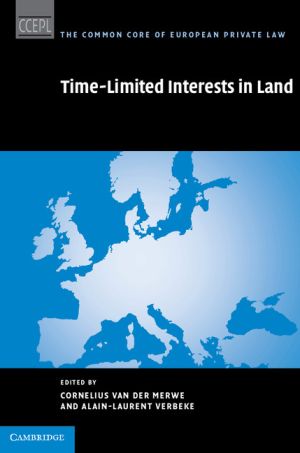We are now closed for the Christmas and New Year period, returning on Monday 5th January 2026. Orders placed during this time will be processed upon our return on 5th January.

A comprehensive comparative treatment of six instances of time-limited interests in land as encountered in fourteen European jurisdictions.
The survey explores the commercial or social origins of each legal institution concerned and highlights their enforceability against third parties, their content and their role in land development.
The commercial purpose of residential and agricultural leases is contrasted with the social aim of personal servitudes (and its common-law equivalent liferent) to provide sustenance for life to mostly family members making the latter an important estate planning device.
Whereas the ingrained principles of leases and personal servitudes restrain the full exploitation of land, it is indicated that public authorities and private capital could combine to turn the old-fashioned time-limited institutions of hereditary building lease (superficies) and hereditary land lease (emphyteusis) into pivotal devices in alleviating the acute shortage of social housing and in promoting the fullest exploitation of pristine agricultural land.